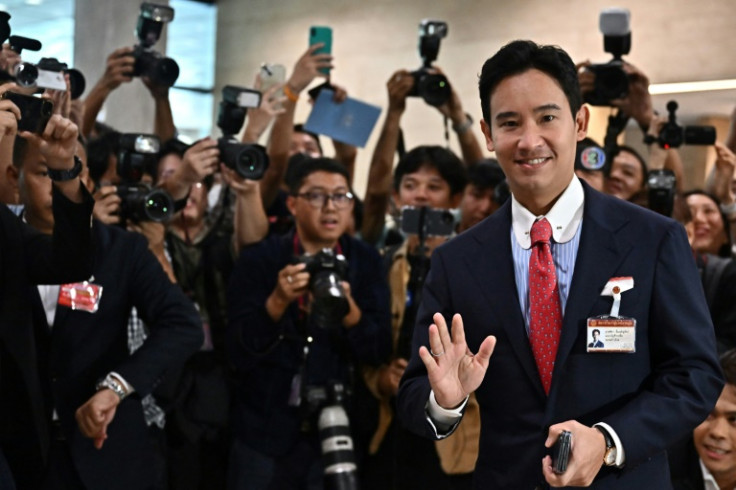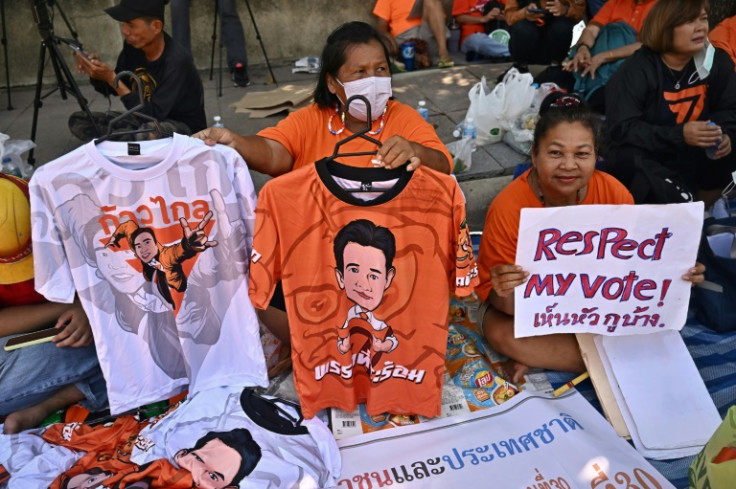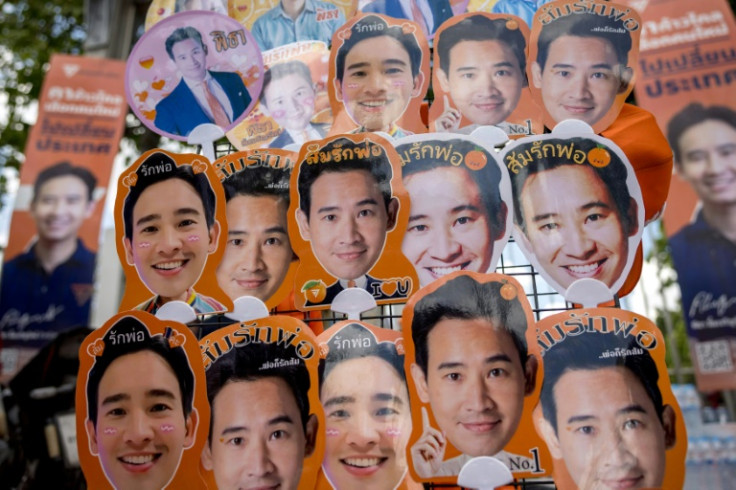Thai Reformist Pita Limjaroenrat Loses PM Vote

Thailand's parliament on Thursday rejected election winner Pita Limjaroenrat's bid to become prime minister.
After hours of discussions but a surprisingly swift voting process, Pita failed to secure the 375 parliamentary votes needed to become Thailand's 30th premier, despite his reformist party winning the popular vote in the general election.
The political challenger rode a wave of support in May that saw voters emphatically reject almost a decade of army-backed rule under Prayut Chan-o-cha, who took power in a 2014 coup.
But the outcome had become increasingly inevitable, with signs conservative MPs of the lower house and junta-appointed senators would not give him their support.
Ahead of the parliamentary vote, nearby highway overpasses had razor-wire placed on them, while the parliament compound was ringed by containers designed to deter demonstrators, a sign of the tensions around the event.
Only three years ago, massive pro-democracy protests erupted in Bangkok after a court dissolved Pita's Move Forward Party's predecessor, the Future Forward Party.
"We Thais have the right to voice our opinions since we're a democratic country," said MFP supporter Patchaya Saelim, 17, outside parliament ahead of the vote.
"We can gather to protest."
The path forward remains unclear, with the house speaker yet to indicate if Pita can try again to secure the necessary votes.
Following May's election, he cobbled together an eight-party coalition totalling 312 votes, still short of the needed 375.
His bid was sunk by the senators, the vast majority of whom voted against him, which raises questions about whether another round would end in a different result.
MFP's reformist agenda -- including suggestions to amend the country's strict royal defamation laws -- has drawn objections from conservatives and the country's powerful establishment.
The party's plans to shake up business monopolies are similarly unpopular with the old guard.
Pita's loss may also spell trouble for his coalition, which includes opposition runner-up the Pheu Thai party.
There has been speculation about whether the more established party might now back someone else for the top job.
Potential candidates include Pheu Thai leader Paetongtarn Shinawatra, daughter of exiled ex-leader Thaksin Shinawatra, and the party's Srettha Thavisin, a business leader.
Pita's path to power has been further complicated by the threat of parliamentary suspension, and two cases filed against him and his party.
A day before the vote, the Election Commission recommended his suspension from parliament over allegations he broke campaign rules -- a move the MFP branded as an "abuse of power".
The recommendation followed a probe into Pita's ownership of shares in a media company, prohibited under Thai law.
The station has not broadcast since 2007, and Pita has said the shares were inherited from his father.
Pita's MFP was the only party that campaigned on tackling the thorny issue of the royal defamation laws, but that too landed it in trouble.
The Constitutional Court accepted a case alleging that the promise amounts to attempting to "overthrow" the constitutional monarchy. The party has two weeks to present their defence.


© Copyright AFP 2024. All rights reserved.







